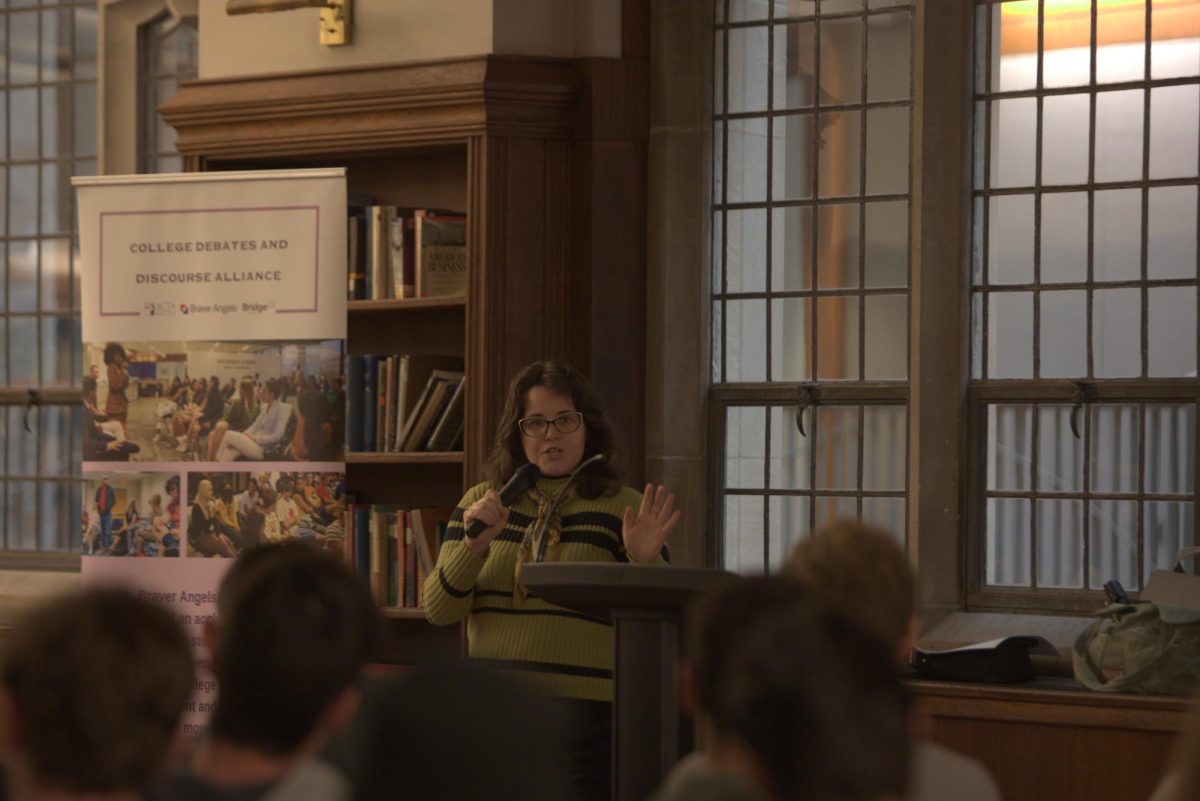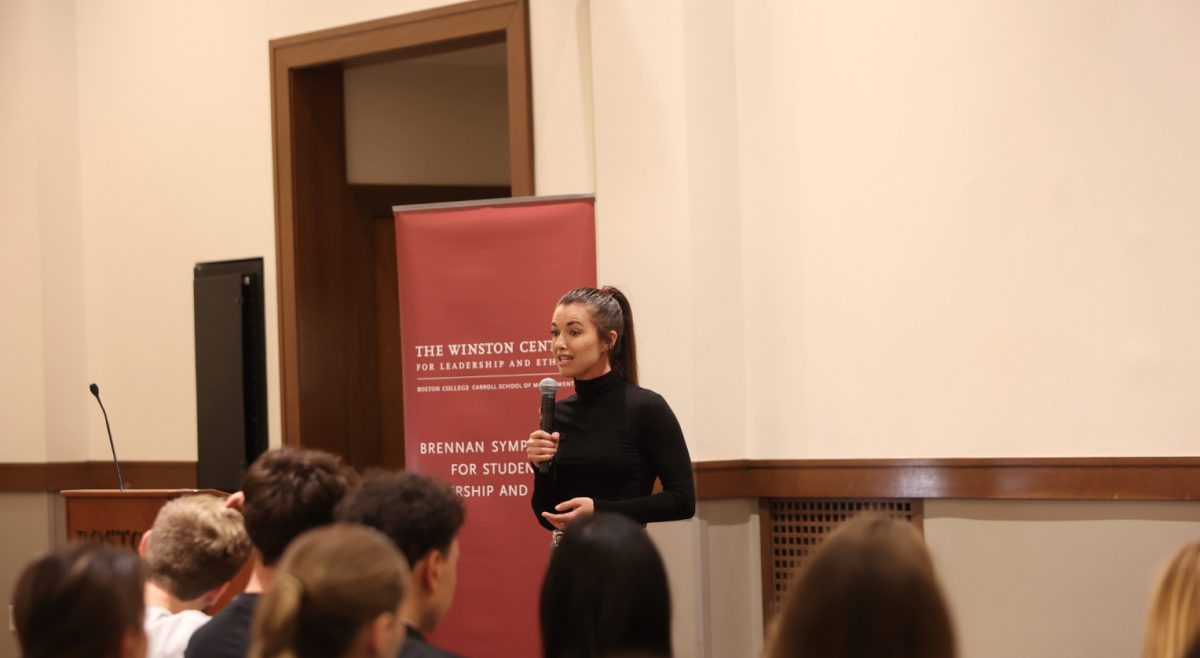In response to the 2,000 missing plates from Corcoran Commons, EcoPledge of Boston College, a student sustainability group on campus, will begin a new initiative to recover the stolen flatware. The effort seeks to return the thousands of plates students have taken from the dining hall since September. The initiative will include the distribution of pamphlets and door-to-door plate collections that will become more visible within the next week and, if necessary, continue until the end of the year.
In order to recover the missing plates, Boston College Dining Services reached out to several student groups—including EcoPledge—earlier this year. Daniela Palma, MCAS ’19, who is spearheading the project on behalf of EcoPledge, traces the missing plates back to an environmental initiative implemented by BC Dining in the fall.
In September, BC Dining implemented a sustainability initiative to cut down on the use of disposable to-go containers in order to shrink its carbon footprint. For the first two months of the academic year, students had to request takeaway containers from the register while paying for food and then transfer the food from the plate to the container themselves. Students were either unaware of this shift in the way of receiving to-go containers or were too lazy to transfer the food, so some students would often bring the plates back to their rooms.
Since the inventory of plates has decreased so drastically since the initiative was implemented, BC Dining has been forced to use more single-use to go containers, enlarging its carbon footprint—something it was trying to avoid when initially removing access to to-go containers.
“The whole initiative started as a way to reduce our carbon footprint and recycle more,” Palma said. “At Lower what they do is they recycle, they compost and everything … by people taking the to-go plates or the to-go containers, they just end up in the trash … We don’t recycle as much as we would if we would be using plates.”
When traditional plates are returned to the conveyer belt in Corcoran Commons, anything left on the plate is sorted into compost, recycling, or trash. In this way, BC Dining ensures that any waste it disposes of is done so in the most eco-friendly manner possible.
With less plates being used, the waste going through the kitchen is reduced because students throw everything away themselves. It is less likely that students will separate food waste, recyclables, and trash as they leave the dining hall, instead opting to throw everything into one bin in a less ecologically efficient manner, Palma said.
EcoPledge’s campaign to retrieve the stolen plates will focus on the monetary cost of the missing plates to the students. The posters the group crafted relay to students that replacing plates costs thousands of dollars in tuition money annually. These posters will be circulated via resident assistants and posted around campus.
If the flyer campaign is unsuccessful, EcoPledge members plan to go door-to-door requesting that students return the plates and collecting them in bins.
They will also minimize effort as an incentive to students, offering to return the plates to Corcoran Commons themselves. EcoPledge members figure that more plates will be returned if the students themselves do not have to remember to physically bring them back to the dining hall.
Because EcoPledge suspects that many of the stolen plates are being used in the kitchens of suites, the door-to-door campaign will target predominantly junior and senior housing.
“What we’re trying to do is to get students aware of the problem and make them see that it’s not a BC Dining service problem, it’s more of our problem [as students],” Palma said. “The aim of the ads is to make it more personal.”
Overall, EcoPledge hopes that the plate campaign will not have to extend too far into the future.
“We’re hoping that if it’s effective then [it will last until] a couple weeks before the end of the semester,” Palma said.
Featured Image by Amelie Trieu / Heights Editor













